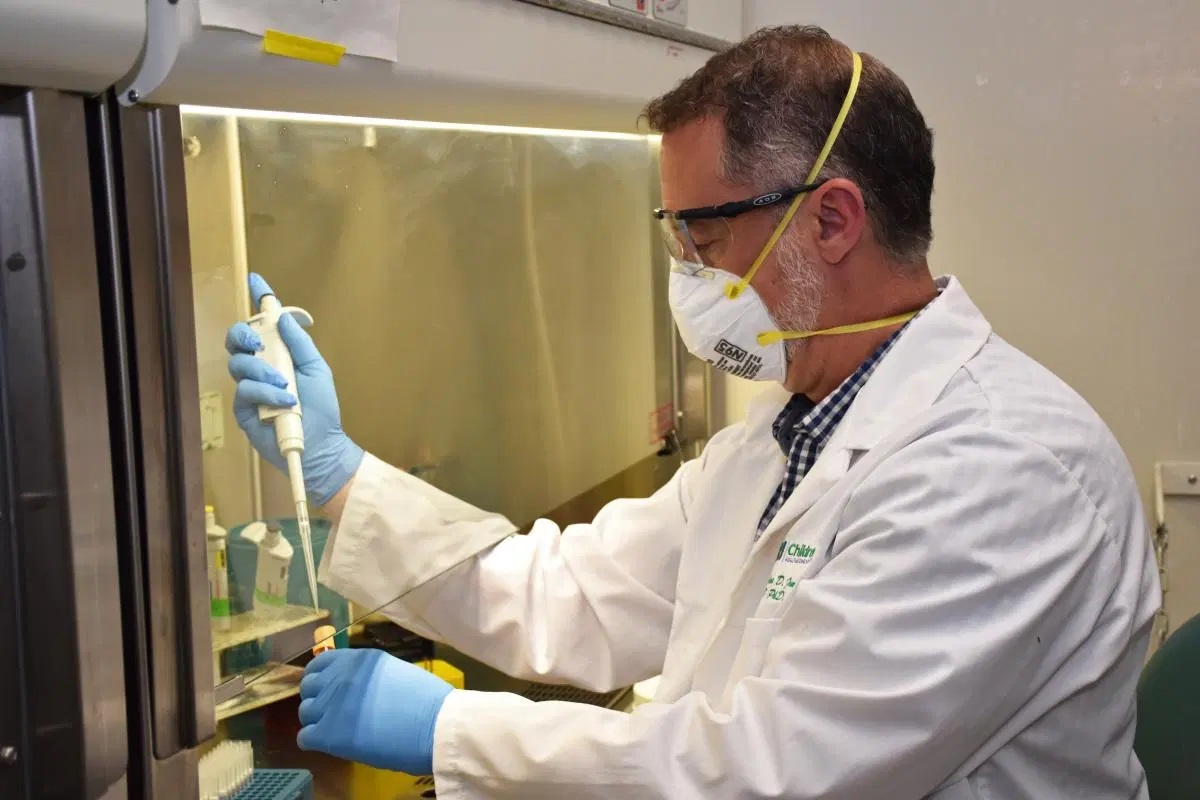Lawson Health Research Institute and Western University researchers, in partnership with local company Diagnostics Biochem Canada Inc. (DBC), say new data suggests the antibody response to COVID-19 is robust in both those who are only mildly ill and those who are critically ill.

Researchers are hoping to learn more about exactly how the antibodies work with a goal of improving patient outcomes by helping to pinpoint who would require certain treatments.
The small study involved 56 people in four groups of 14: critically ill patients at London Health Sciences Centre (LHSC) with COVID-19, critically ill patients who tested negative for COVID-19, people who were mildly ill with COVID-19 and did not require hospitalization, and healthy controls. DBC provided the serological testing kits.
Dr. Douglas Fraser’s team previously profiled the inflammatory immune response to COVID-19, but the latest study looked at the secondary response: the production of antibodies.
Researchers expected to find that those who were seriously ill with COVID-19 were so sick because they couldn’t make antibodies, but instead, Fraser says the data showed that those who were very sick — and even those who died — had a robust antibody response.
“That tells us that we’re still missing something in the picture. There’s probably something going on a little bit earlier in the illness,” he told Global News.
“The next line of investigations we’re starting here in London is to see how those antibodies actually work. Are they working well against the virus? Are they able to actually stop the virus in its track or are they quite benign?”
Fraser says unravelling the mysteries of the antibody response to COVID-19 can help target therapies like convalescent plasma, which involves gathering plasma from individuals with antibodies against the virus and giving it to a patient to supplement their own antibodies.

Get weekly health news
“That’s one of the reasons why we thought we should look at this antibody response and see if it was present or not. Well, we know it’s present. In fact, it’s very, very robust, but we don’t quite know if the antibodies have the ability to neutralize the virus.”
Once researchers know more about how the antibodies actually work against COVID-19, then “what we can do in the future is a blood test (to) determine what kind of antibodies somebody has” and then target convalescent plasma to those lacking effective antibodies “as opposed to giving everyone convalescent plasma and potentially causing reactions in people who don’t need it.”
“While exploratory, our study filled a knowledge gap on the intensity and pattern of humoral responses expressed by critically ill COVID-19 patients,” the study’s conclusion reads.
“Given the rapid spread of COVID-19 and the critical need for therapies, our data may be important for refining future clinical trials with anti-SARS-CoV-2 antibody infusion.”

The team argues that, based on its data, the focus of treatment should shift to combating the viral load a person receives and the body’s more immediate reaction to the infection, including cytokine storms, which basically involve an overreaction to the infection.
“Cytokines are small chemical messengers that your body releases in a very co-ordinated manner to fight off a threat,” Fraser explained.
“We found that there certainly is a cytokine storm, but it’s not what people thought because people were basing their ideas on previous infections that we had seen, like influenza and other infections.”
Fraser says COVID-19 has “a very unique signature” that creates problems in some patients “where literally your blood vessels get very, very inflamed and that sets you also up for blood clots.”
“That cytokine storm is that first event that occurs when you get an infection. And we’re very proud to say that we identified many of the processes here in London and we’re starting to target some of those with therapeutic agents.”
In response to the small study on antibodies, London West MP Kate Young says the city is “once again showing the world that we are leading the way in scientific research into our most pressing health issues.”
“It’s great to see a local business, Diagnostics Biochem Canada Inc., team up with the Lawson Health Research Institute to help better understand COVID-19,” she said in a statement.
DBC’s CEO Manon Hogue says it was the first Canadian company “to launch Health Canada-authorized serological tests for COVID-19 and we are happy that our scientists have been working with Lawson on this important study,” adding that they “look forward to continuing this collaboration.”
Critically Ill COVID-19 Patients Exhibit Anti-SARS-CoV-2 Serological Responses is published in the journal Pathophysiology. Some of the study authors are DBC employees.












Comments